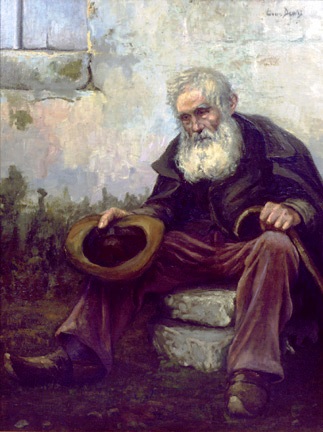I care not how affluent some may be, provided that none be miserable in consequence of it. But it is impossible to enjoy affluence with the felicity it is capable of being enjoyed, while so much misery is mingled in the scene. The sight of the misery, and the unpleasant sensations it suggests, which, though they may be suffocated cannot be extinguished, are a greater drawback upon the felicity of affluence than the proposed ten per cent upon property is worth. He that would not give the one to get rid of the other has no charity, even for himself.
There are, in every country, some magnificent charities established by individuals. It is, however, but little that any individual can do, when the whole extent of the misery to be relieved is considered. He may satisfy his conscience, but not his heart. He may give all that he has, and that all will relieve but little. It is only by organizing civilization upon such principles as to act like a system of pulleys, that the whole weight of misery can be removed.
...
In all great cases it is necessary to have a principle more universally active than charity; and, with respect to justice, it ought not to be left to the choice of detached individuals whether they will do justice or not. Considering, then, the plan on the ground of justice, it ought to be the act of the whole growing spontaneously out of the principles of the revolution, and the reputation of it ought to be national and not individual.
...
Separate an individual from society, and give him an island or a continent to possess, and he cannot acquire personal property. He cannot be rich. So inseparably are the means connected with the end, in all cases, that where the former do not exist the latter cannot be obtained. All accumulation, therefore, of personal property, beyond what a man's own hands produce, is derived to him by living in society; and he owes on every principle of justice, of gratitude, and of civilization, a part of that accumulation back again to society from whence the whole came.
...
When wealth and splendor, instead of fascinating the multitude, excite emotions of disgust; when, instead of drawing forth admiration, it is beheld as an insult on wretchedness; when the ostentatious appearance it makes serves to call the right of it in question, the case of property becomes critical, and it is only in a system of justice that the possessor can contemplate security.
To remove the danger, it is necessary to remove the antipathies, and this can only be done by making property productive of a national blessing, extending to every individual. When the riches of one man above another shall increase the national fund in the same proportion; when it shall be seen that the prosperity of that fund depends on the prosperity of individuals; when the more riches a man acquires, the better it shall for the general mass; it is then that antipathies will cease, and property be placed on the permanent basis of national interest and protection."
- Thomas Paine, 1795

